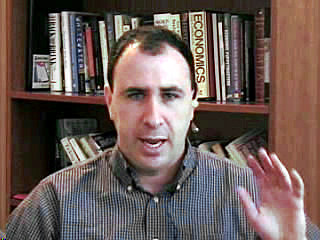A Quote by Tom Peters
In McKinsey's world, all of life is one of two things: strategy or organization.
Quote Topics
Related Quotes
Netanyahu and his coalition have no strategy of their own except endless counterinsurgency against the backdrop of a steadily deteriorating diplomatic position within the world and an inexorable demographic decline. The operation in Gaza
is not Netanyahu’s strategy in excess; it is Netanyahu’s strategy in its entirety. The liberal Zionist, two-state vision with which I identify, which once commanded a mainstream position within Israeli political life has been relegated to a left-wing rump within it.
Organizations aren't loyal; they can't be. They have to be nimble, they have to change. That means everybody in every organization will have one eye on his or her own brand, and the other eye on the organization of which he or she is a part. And the first loyalty - self-loyalty - is becoming more and more dominant, simply as a survival strategy. I'm in no way blaming anyone here; this is just simply a fact of life.
People sometimes talk about me as being a brand, having a strategy and whatever else. I wish. Seriously. I wish I had it together enough to have a strategy. But it's so instinctual. It usually comes down to two things: the person I'm working with - the director is really important to me - and a line in a script.
As with military campaigns, cultural warfare is always decided over the pragmatic problems of strategy, organization and resources. . . . The factions with the best strategies, most efficient organization, and access to resources will plainly have the advantage and very possibly, the ultimate victory.
I doubt there's any government in the world that guides itself primarily by strategy or conceptual documents or worldview. Anybody who has the reins of power has to look at practical limitations and tradeoffs - the fact that you can focus at most on one or two things at a time, that resources are limited.
The distance between number one and number two is always a constant. If you want to improve the organization, you have to improve yourself and the organization gets pulled up with you. That is a big lesson. I cannot just expect the organization to improve if I don't improve myself and lift the organization, because that distance is a constant.
A real strategy is a coherent mix of policy and action designed to overcome a significant challenge. So a sensible employee might indeed say that they have no idea what the organization's strategy is - because it seems to have none. Senior managers' so-called "strategies" are heavy with aspirations and goals, but light on how resources and strengths will be combined to achieve them.
As prime minister, Canadians expect me to do two things: To stand up for Canadian interests and project Canadian values; and to have a good, constructive relationship with our largest trading partner and closest neighbor, the United States. Those two things are not incompatible. It requires a very deliberate strategy and approach, but I think we've done that.



































